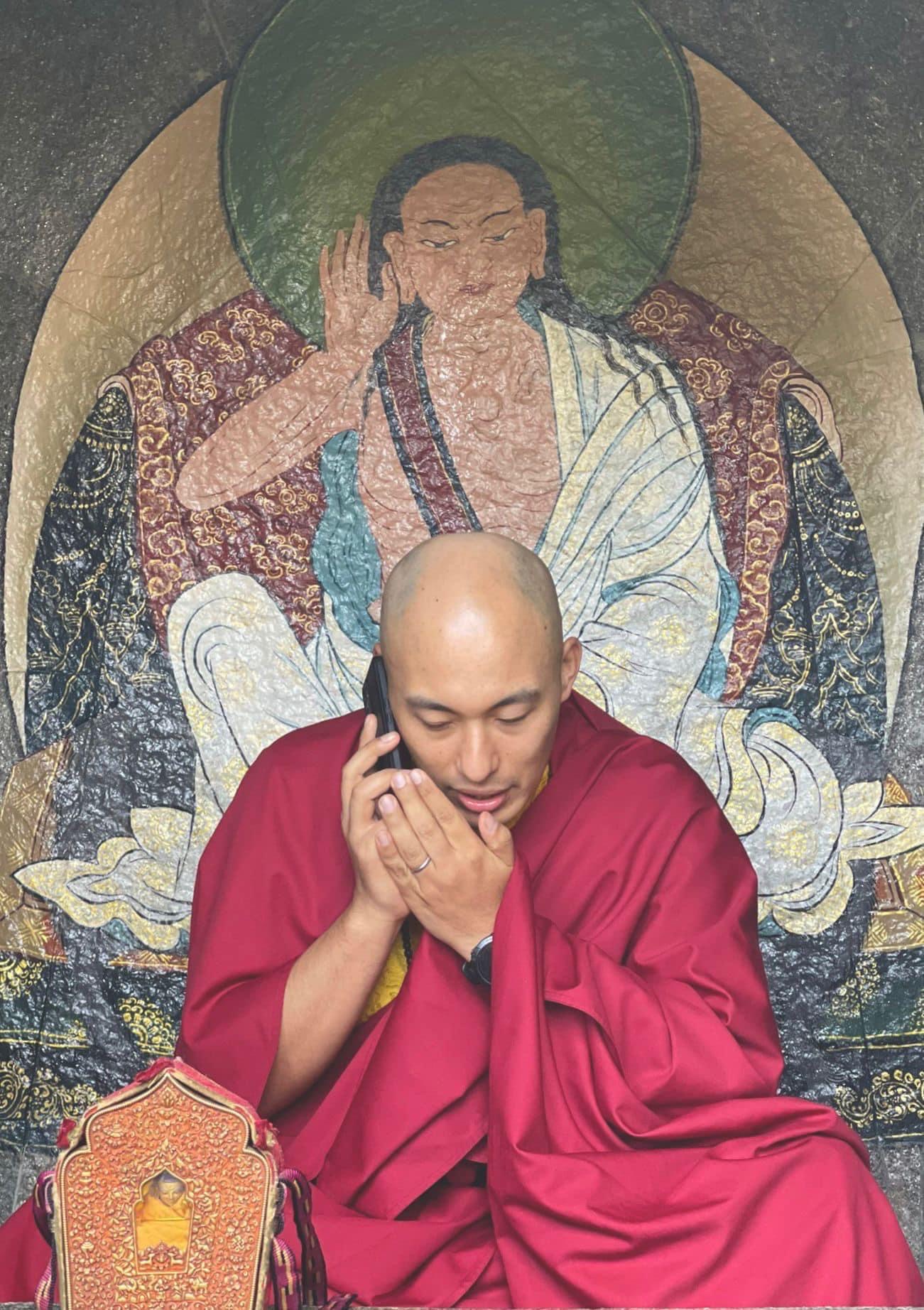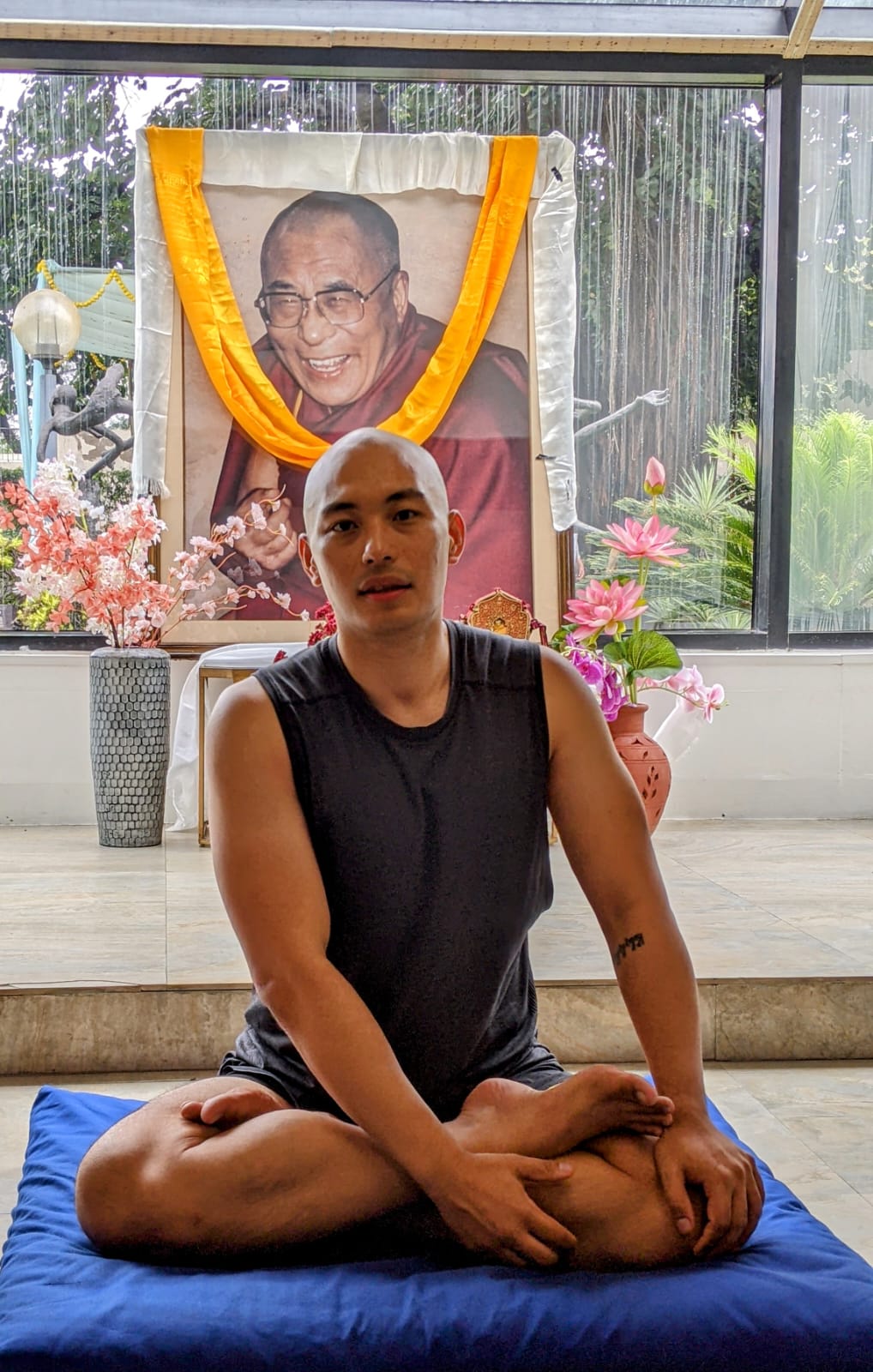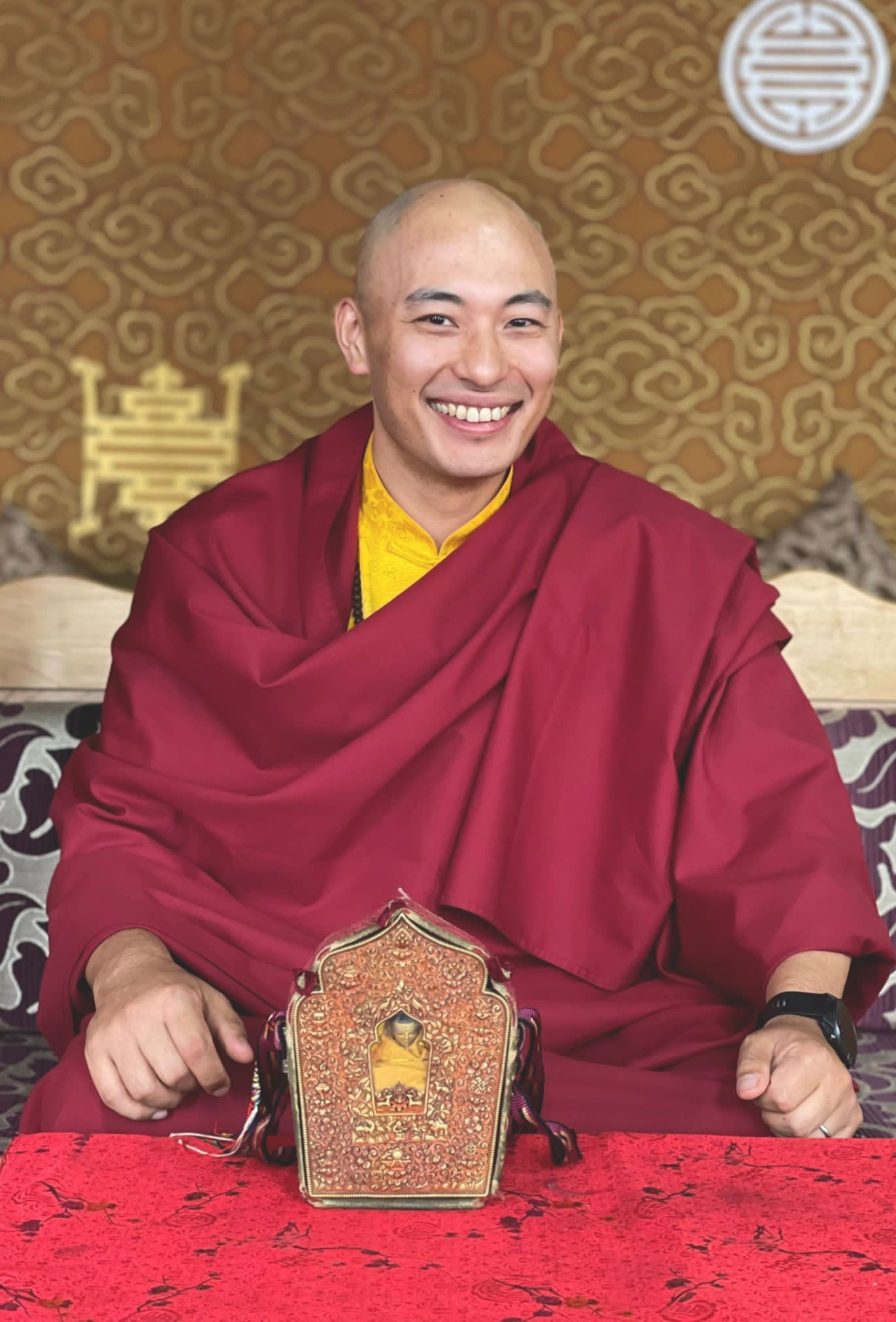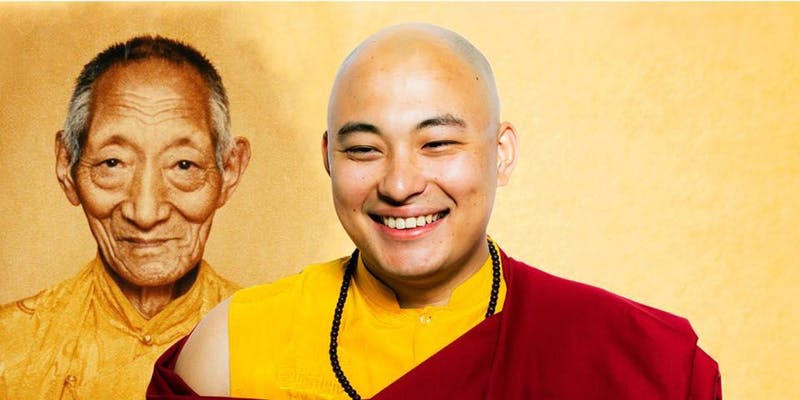In October, at the Fourth International Vajrayana Conference hosted in the Kingdom of Bhutan, His Eminence the 2nd Kalu Rinpoche presented his vision for Niguma Yoga as a practice for all, emphasizing the aspects of health and physical wellbeing. At the conference he shared with the attendees the idea that Niguma Yoga, which is named after one of the two great dakinis of the Shangpa Kagyu lineage, might provide more accessibility to Buddhist teachings while retaining fidelity to Dharma. Over the two-day event, he was able to offer a taster session for interested attendees, which received very positive feedback. In the new year of 2023, Rinpoche will bring Niguma Yoga to the city of Hong Kong, a considerable contrast in lifestyle and busy-ness to Bhutan.
Over a Zoom conversation with me on 9 January, Rinpoche said that Niguma Yoga possesses a very deep dimension of Buddhist doctrine, which can be accessed by more dedicated practitioners. However, Rinpoche, who oversees 46 meditation centers globally, modified Niguma slightly, placing less emphasis on the lineage of practice and more on the yoga tradition as a program for health and wellbeing (he practiced 750 sessions within 6 months). The health aspect is not simply part of an attempt to modernize. He deeply believes that spirituality, intellectual development, and meditation are aided and abetted by a robust body.
“I am mindful of my predecessor Kalu Rinpoche (1905–89) and his legacy in the West,” he says. “He pioneered the concept of the three-year retreat in the 1970s, with the vision that men and women were equal participants. This prolonged retreat program needed to be egalitarian and accessible to all.” He sees the sponsorship of these extended retreats as essential to cultivating intellectual and practical mastery. “You need some sort of solitary time if you want to do real practice, and practice defines you as a Buddhist practitioner.”

On another front, Kalu Rinpoche’s foundation has been engaged in both academic and humanitarian work. On the first front, it has been digitizing the texts of the Shangpa volumes in their original language, and on the second, it has provided immediate relief to people in Bhutan and India during the pandemic (such as sending food). However, the foundation’s core purpose is financially supporting practitioners to attend three-year retreats.
The need for an extended period of solitude raises questions of practical, applied Buddhism in the modern world, as well as re-envisioning old ways of doing things. “It is good in many respects that Bhutan tries to preserve its traditional institutions and identity. Buddhism does not repudiate culture and heritage; it depends on them. Yet an overemphasis can be alienating to the youth. In other words, Buddhism does not have to modernize completely, but only where it needs to,” he notes.
The theme of balancing traditional practice and modern needs is a constant theme in his recent projects. In Bhutan, he plans to begin construction of a unique spiritual hub 45 minutes from Thimphu. Called the Kalu Foundation, it will have a park with the aesthetics of a Zen garden with generous greenery. It will have a library for people to read books and is open for overnight stays. He further observed that it would serve as a “middle way between a meditation center and a traditional temple,” which in his words, “Bhutan already has plenty.”

“Temples serve specific and formal needs: you have to wear traditional Bhutanese clothes to enter, you seek the blessing from the monks, and then you leave. As someone not from the Central Monastic Body, I wanted to explore how we could provide spirituality for citizens without being too ‘serious.’ The result is an open space for people to have tea or coffee and hang out, to come and go as they please, to meet people or to enjoy their own retreat in solitude. The key is flexibility, not a pure temple for formal Buddhists but not a place that is only for entertainment,” declares Rinpoche. The goal is for people to have a place to engage in genuine reflection.
Partly because of his Millennial generation status (he was born in 1990) and his awareness of Bhutanese youth’s enchantment with online activity, Rinpoche’s perspective on social media is also refreshing. It transcends the dichotomies of uncritically embracing it in the name of promoting the Dharma and a completely negative assessment of it as toxic and debilitating. “People need to get positivity from its use,” he says. “I remember how quickly the hours passed when I used TikTok. Yet through all those videos, I was variously motivated to work out, encouraged to delve deeper into my yoga, or inspired to try cooking healthy recipes.”
Rinpoche might not use TikTok anymore, but his Instagram account has 25.6k followers, a very high number for a religious leader. “Googling things or searching for information on the Internet is not the same as the community spirit from all these motivational videos. Humanitarian activities were also driven by social media, with entire events inspired by other humanitarian groups. Social media can absolutely reflect positivity.”

Aside from his relatively optimistic assessment of the dominance of digital technology today, Rinpoche is more sympathetic about the place of scepticism in the healthy spiritual life. “Don’t be deceived by appearances, including my own. Pure intentions need to be protected by not having blind faith. I would say blind faith is actually a lack of confidence. It is all connected: many are partially (or completely) burned out, even desperate, by the time they are seeking religion. Scepticism will help you in the sense that you should not get sucked into the teachings right away. Scepticism simply means assessing things with a clear eye. There is no need to try and achieve quick results. Working on yourself takes time and a bit of solitude.”
What of the challenges ahead for the world as 2023 unfolds? “You know much more than me about the challenges. Broadly, we can make things better by making better choices,” says Rinpoche. “We should try to make choices that turn away from pride, ego, and attachment. All choices of this kind can only be good. And we might make choices that are good for the economy but not good for the planet. Yes, we need to sustain ourselves, but not to the point that we make everything toxic. And finally, instead of only saying a prayer, we can just make a better choice.”
See more
His Eminence the 2nd Kalu Rinpoche
Kalu Rinpoche on Instagram
Related news from BDG
Buddhist Kingdom of Bhutan Hosts Fourth International Vajrayana Conference
Related features from BDG
Gelongma Dompa (dgeslongma’i sdom pa): The Blessing of Bhikshuni Ordination in Bhutan


